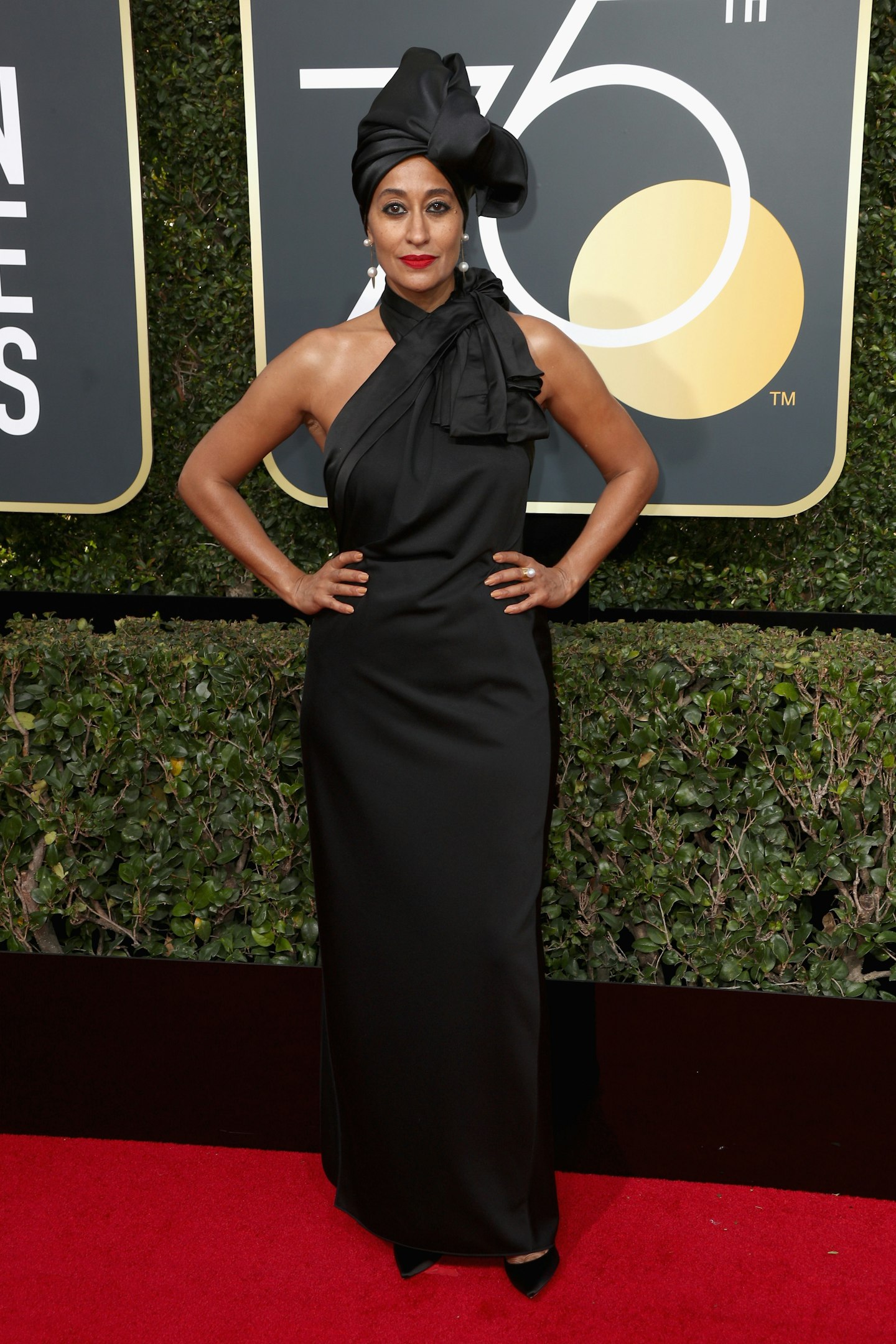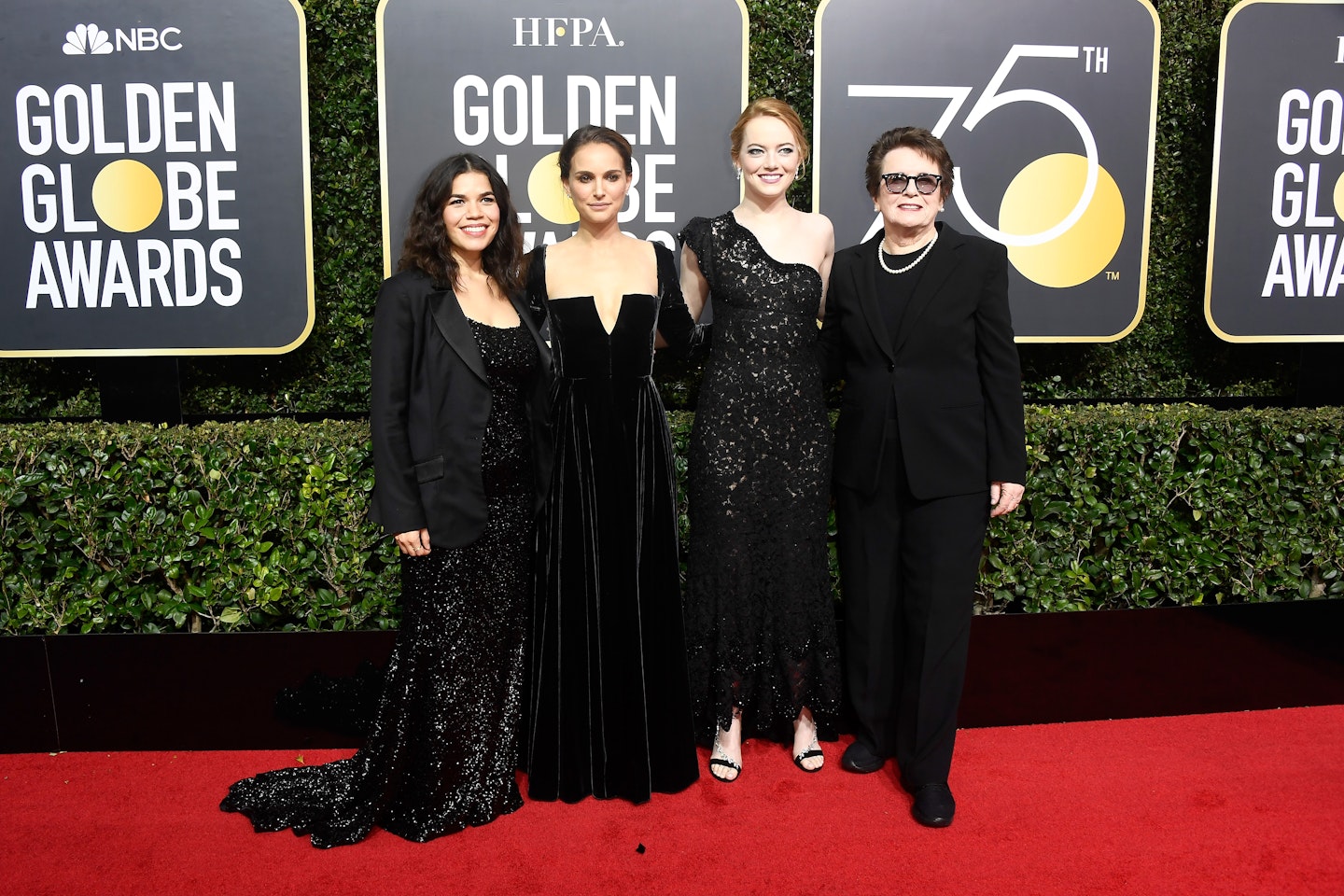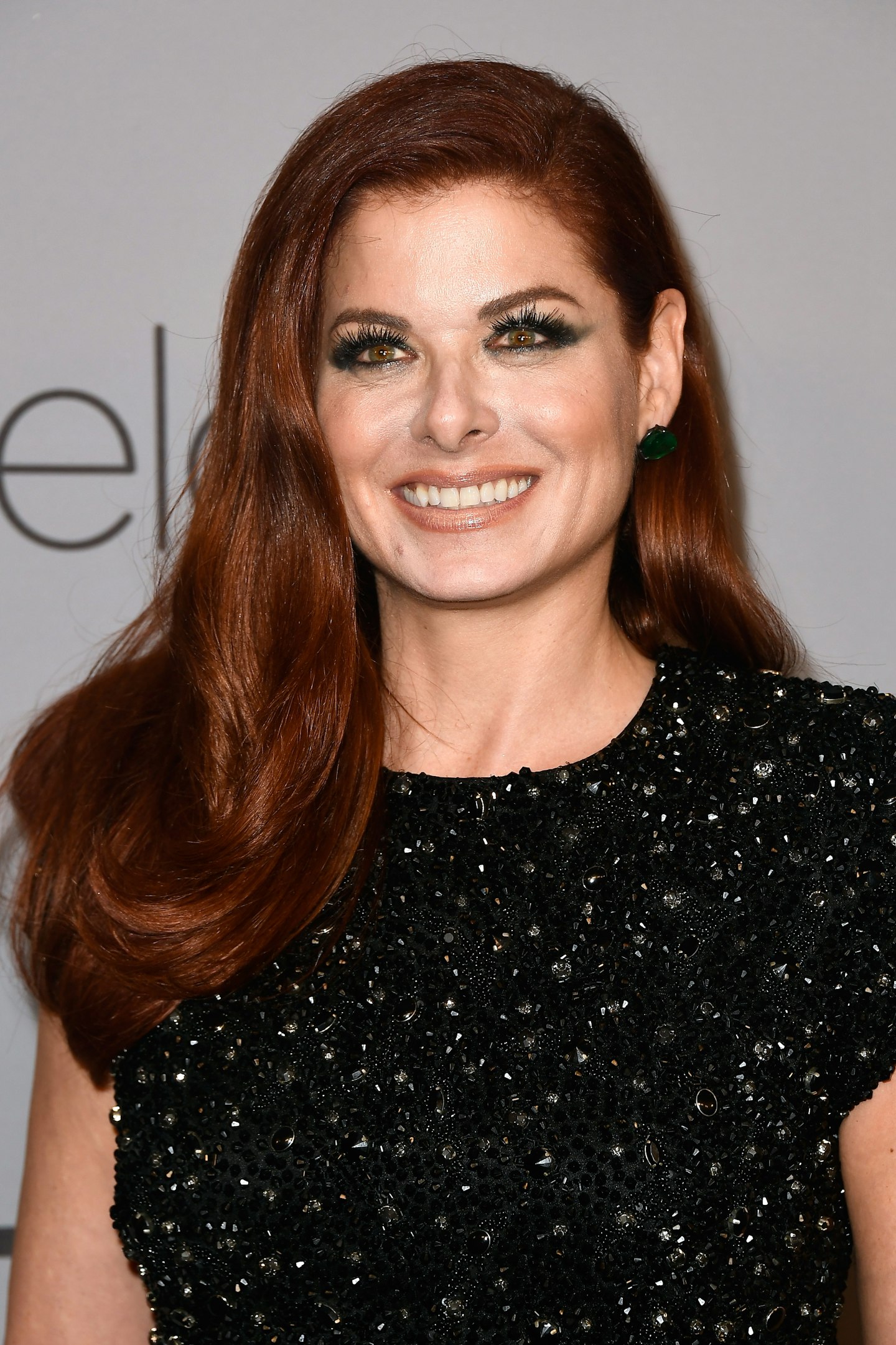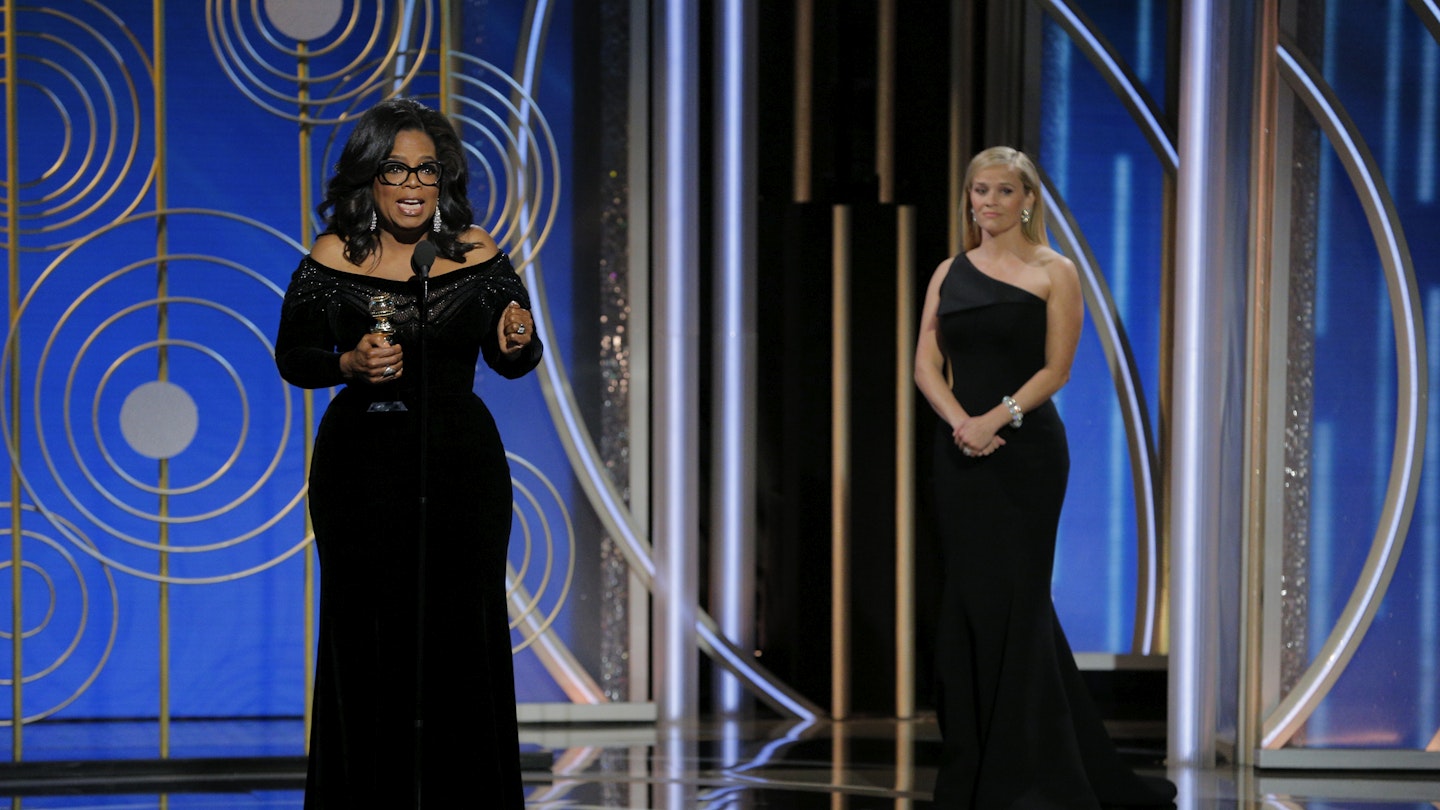The Golden Globes 2018 was one of the most extraordinary, most significant award shows in recent history – and it started with the black dresses.

It started with one woman — stepping onto the red carpet in a black dress. Then another. And a third. Then they all came. And as the trickle became a flow, became a sea, that quietly, insistently, surged and ebbed along a scarlet path, my throat locked, my eyes burned. Tracee Ellis Ross, Gal Gadot, Zoë Kravitz, Nicole Kidman, Lily James, Halle Berry, Michelle Pfeiffer, Margot Robbie, Reese Witherspoon, Viola Davis, Helen Mirren, Sally Hawkins, Isabelle Huppert, Jessica Chastain, Elisabeth Moss, Kerry Washington, Angelina Jolie, Emma Stone, Alicia Vikander, Claire Foy, Dakota Johnson, Hong Chau… Some came alone, eight brought a very important date.
Wearing black was a powerful symbol of solidarity — but merely the start.
When the announcement — that several actresses who had spoken out as part of the #MeToo movement were planning to wear black to the Golden Globes — came back in December, it provoked eye-rolls in many and raised questions for most. They were questions of authenticity and complicity, of consequence and impact, of real-world struggles and representation. Some appreciated the very public show of solidarity; others called it empty and meaningless, and there were those who considered it a misjudged call for women to mourn, to still (literally) shoulder the darkness that they’d only just begun to escape the burden of.
The pertinent and fair question though was: what will it accomplish in real terms? Who will it really make a difference for and how? How will this stop women from being abused or find justice for those that have been? And part of the answer emerged on the very first day of 2018, when Time’s Up was launched — an initiative from 300 women in the entertainment industry to fight systemic abuse in the workplace. At its core is “50/50 by 2020”, which aims for gender parity in Hollywood studios and talent agencies, and a legal defence fund to help those in a less privileged position, particularly working-class women, to be protected from, and be able to report, harassment or abuse.

The questions over the impact of wearing black to the Globes remained though. Questions about how many women would recognize the protest, the chance to promote Time’s Up. And if they did, whether it would fall flat as the action of privileged women, never truly intersecting with those less privileged who continue to live in the darkness and silence.
But then they came and filled the carpet. And yes, these women are privileged – inescapably – but they didn’t just acknowledge it, they used it. More specifically, they used the red carpet – a space that they have long dominated, though for different reasons – at one of the biggest awards ceremonies, to lay their privilege bare and shape it, in their fists, into a tool. Wearing black, it was clear, was a powerful symbol of solidarity and smart promotion of Time’s Up, but merely the start. There was more.
There were the dates of Emma Stone, Susan Sarandon, Meryl Streep, Michelle Williams, Laura Dern, Emma Watson, Shailene Woodley and Amy Poehler — activists, women who have been committed to this fight for years, who have devoted their lives to the support and advancement of women, who could so easily and unfairly have been erased by the mainstream media, unless they were shoulder-to-shoulder with the household names up for major awards. Women like Tarana Burke, the creator of the #MeToo movement and senior director at Girls for Gender Equity and Ai-jen Poo, the director of the National Domestic Workers Alliance, who were deferred to when reporters asked the actresses about their reasons for wearing black.
There was Debra Messing’s ballsy, brilliant, awkward-as-hell response to that very same question, asked by E!. “We want equal pay. I was so shocked to hear E! doesn’t believe in paying their female hosts the same as their male co-hosts.”

There was Natalie Portman’s also ballsy, brilliant, awkward-as-hell introduction to the Best Director category, “and here are the all-male nominees” — a valid emphasis of fact, when a female-directed film, Lady Bird, took home Best Actress In A Motion Picture — Musical Or Comedy and Best Motion Picture — Musical Or Comedy (yes, all the nominees for Best Director were from the drama category, but that still doesn’t explain Greta Gerwig’s omission).
There was Oprah Winfrey’s punch-the-sky, heart-filling speech as she accepted the Cecil B. DeMille Award for lifetime achievement, addressing both racial and sexual abuse. A speech which ended with her proclaiming that “a new day is on the horizon… and when that new day finally dawns, it will be because of a lot of magnificent women, many of whom are right here in this room tonight, and some pretty phenomenal men, fighting hard to make sure that they become the leaders who take us to the time when nobody ever has to say, ‘Me too,’ again.”
You see, this is what is at stake, this is why the black dress is so much more than a black dress: we have a true, real, once-in-a-lifetime chance to dismantle the structural and systemic abuse that has underpinned Hollywood, and so many industries and communities, for so long. To protect the next generation of women and men; all of them. To ensure secrets no longer sink and simmer in the shared silence. To say time is up. That time is dead. And in its place, something better can, must, be born. That’s what I saw, what I felt, what my throat closed around and held when I saw a red carpet flooded with black.
Terri White is Editor-In-Chief of Empire magazine.
